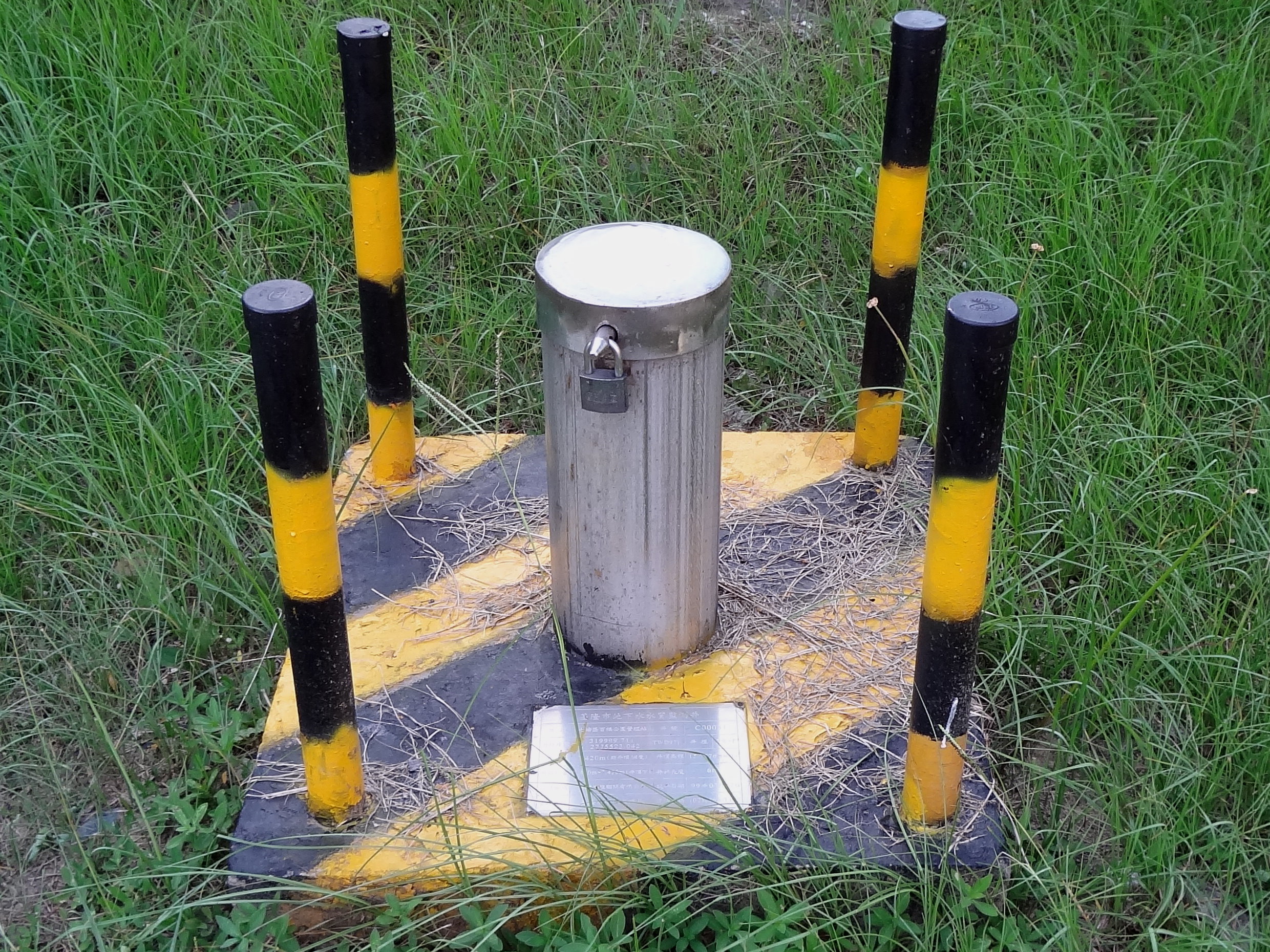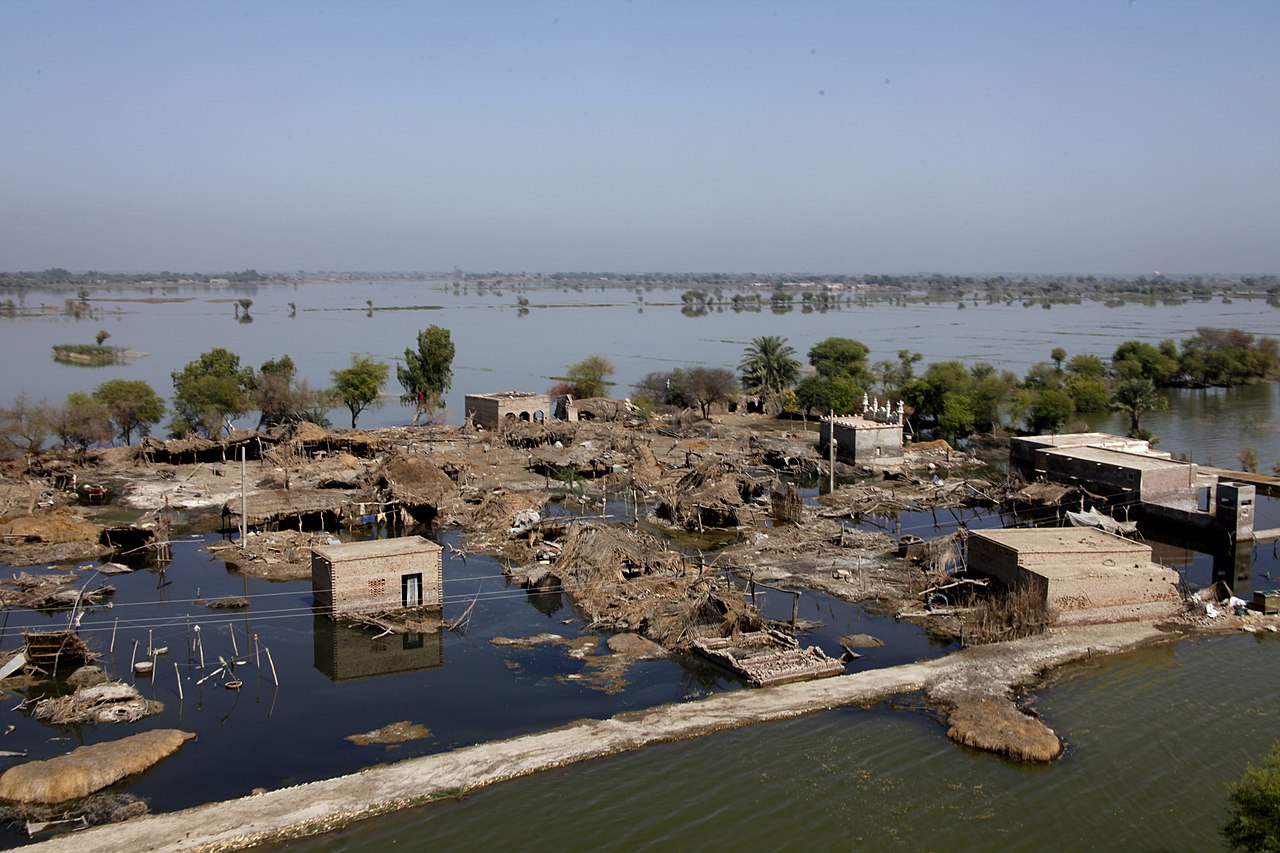Climate Change
Climate change has been called the defining challenge of our time. Its impacts are already evident and will intensify over time if left unaddressed. As part of the global array of networks of systems to monitor climate change, satellites now provide a vital and important means of bringing observations of the climate system together for a global perspective. Satellites contribute to the monitoring of greenhouse gases related to deforestation and industrial processes, the changing of ice in polar caps and glaciers, sea-level rise, temperature changes, as well as several essential climate variables.
"Climatology has been regarded as a subdiscipline of Meteorology for quite some time. Early climate classifications refer to temperature and precipitation as the main factors determining regional climate. Climate parameters such as the occurence of vegetation types, the length of the vegetation period as well as the date of flower blossoms indicate the multidisciplinary character of climatology. Today, climatology or climate research is also referred to as geobiosphere dynamics. It describes the complex interrelations between climate subsystems such as the atmosphere, land, oceans and the biosphere. Despite the considerable growth of the field's scope, meteorology remains central to it, not least because the atmosphere represents the most important transport medium of the climate system" (University of Vienna, 2018).
"Climate change will affect the availability, quality and quantity of water for basic human needs, threatening the effective enjoyment of the human rights to water and sanitation for potentially billions of people. The hydrological changes induced by climate change will add challenges to the sustainable management of water resources, which are already under severe pressure in many regions of the world. Food security, human health, urban and rural settlements, energy production, industrial development, economic growth, and ecosystems are all water-dependent and thus vulnerable to the impacts of climate change. Climate change adaptation and mitigation through water management is therefore critical to sustainable development, and essential to achieving the 2030 Agenda for Sustainable Development, the Paris Agreement on Climate Change and the Sendai Framework for Disaster Risk Reduction" (UNWATER, 2020, p. 1).
University of Vienna. (2018) https://img.univie.ac.at/en/meteorology-general-information/
UN Water. (2020). World Water Development Report 2020. https://unesdoc.unesco.org/ark:/48223/pf0000372985.locale=en
Related Content
Article
LIFE Calls for Proposals 2025: claim your share of €600 million and help create a sustainable future for Europe!
The EU LIFE Programme is launching the 2025 Call for Proposals, and once again we want to help you take your green ideas to the next level. As the #ForOurPlanet campaign gets under way, there’s never been a better time to turn your vision into action! If you’ve got an idea for conserving nature, protecting the environment, taking climate action or transitioning Europe to clean energy, your project could be in for a share of the €600 million just announced for 2025.
A celebration of valuing water for World Water Day 2021
World Water Day, celebrated each year on March 22nd, since 1993, celebrates water and raises awareness of the ongoing global water crisis. The theme this year is Valuing Water. Much more than just price, water has huge value for households, food, culture, health, education, and the environment (UN Water 2021).
Capacity Building and Training Material
Water Diplomacy, a Tool for Climate Action?
In this SIWI World Water Week workshop organised by adelphi and IHE Delft, experts from the diplomacy, development, security, climate change and water communities discussed the conditions under which specific diplomatic tools can be used by riparian and non-riparian countries to shape regional cooperation to address climate, and other security and development challenges, such as migration.
Event
United Nations/Costa Rica/PSIPW - Sixth conference on the use of space technology for water management
San José, Costa Rica, 7-10 May 2024 (with a possibility of online attendance) - streaming in UTC-8 time zone.
Hosted and supported by the Inter-American Institute for Cooperation on Agriculture (IICA)
Co-sponsored by the Prince Sultan Bin Abdulaziz International Prize for Water (PSIPW)
UNFCC COP 27

The Sharm el-Sheik Climate Change conference from 6-18 November 2022. More information about the conference and its preparations will be provided soon.
New! COP 27 Information for participants section launched. On this page you will find important information to help you plan your attendance at the COP in Sharm el-Sheik.
Host country information
Visit the COP27 Host country website
Delegation office space booking platform
The 102nd AMS Annual Meeting
The American Meteorological Society Annual Meeting is the world’s largest yearly gathering for the weather, water, and climate community. It brings together great minds from a diverse set of scientific disciplines – helping attendees make career-long professional contact and life-long friends while learning from the very top people in the atmospheric sciences.
Local Perspectives Case Studies
Project / Mission / Initiative / Community Portal
WMO Hydrological Observing System Portal
Currently, WHOS makes available three data portals allowing users to easily leverage common WHOS functionalities such as data discovery and data access, on the web by means of common web browsers. For more information on WHOS data and available tools, please refer to the Section WHOS web services and supported tools.
WHOS-Global Portal provides all hydrometeorological data shared through WHOS. WHOS-Global Portal is implemented using the Water Data Explorer application.
Stakeholder
Person

Jiayun Huang
Intern United Nations Office for Outer Space Affairs
Jiayun Huang was a master student at Imperial College London, specializing in ecological applications. She holds a bachelor's degree in Environmental Science. Her research includes a wide range of topics related to environmental monitoring, evaluation, and management using remote sensing technology. She has undergone professional training in field investigations and laboratory operations, and is able to integrate them with remote sensing technology in the research projects.

Amos Kabo Bah
Dean, International Relations Office University of Energy and Natural Resources
Dr. Amos T. Kabo-Bah is a distinguished expert in climate change, energy, and hydrology. With a Ph.D. from Hohai University, China, he has built an impressive career in research, teaching, and consulting. His experience includes a postdoctoral position at the University of Ibadan, Nigeria, and his current role as Dean for International Relations at the University of Energy and Natural Resources, Ghana. Dr.
Freddy Soria
Head of research center Water, Energy and Sustainability Research Center, Catholic University of Bolivia
Civil and environmental engineering, committed with education and capacity building to bridge gaps between practice and science. Hydrological modelling, environment, climate change impacts in the Andes, WASH (water-sanitation-hygiene), remote sensing and GIS applications to water resources evaluation. Taking my initial steps on climate communication, environment and health, perhaps the most critical issue in the region. There is so much to do in Latin America!

Eric Mensah Mortey
Assistant Research Fellow University of Energy and Natural Resources
Eric is an enthusiastic hydroclimatologist and energy scientist with a strong research focus in spatial modeling, atmospheric-hydrological modeling, climate change, and hydropower sustainability assessment. He has strong expertise in GIS and Remote Sensing and hydrological modeling with Water Evaluation and Planning (WEAP), and the fully coupled Atmospheric-Hydrological Water Research and Forecasting Model (WRF-Hydro).

Helen Awe-peter
Principal Scientist National Space Research and Development Agency
I am a geoscientist with expertise in climate change adaptation, hydrological analysis, GIS, and remote sensing. For over six years at the National Space Research and Development Agency (NASRDA), I have applied geospatial technologies to address challenges in biodiversity conservation, sustainable land use, and water resource management.

Jumpei Takami
Associate Expert in Remote Sensing United Nations Office for Outer Space Affairs
Proficient in Remote Sensing and Geographic Information Systems with Machine Learning approach: Analysis of disaster risk reduction and management associated with climate change using remote sensing and geographic information system technologies and implementation of disaster-oriented projects; landslide, flooding, drought, and land subsidence, optionally with machine learning approaches; forest inventory for canopy height and above ground biomass, and planning, design, construction, and maintenance of civil engineering construction projects.

Anam Bayazid
Intern United Nations Office for Outer Space Affairs
Anam Bayazid is an engineer with a passion for earth observation and space exploration technologies. Her academic journey involves pursuing a Master of Engineering in Systems Engineering with a concentration in Space Systems at Stevens Institute of Technology in United States. Her specialization is in systems modeling and simulation, as well as designing missions and systems for space exploration.

Stuart Crane
Programme Management Officer UN Environment
Mr Stuart Crane, has been a Programme Management Officer at the United Nations Environment Program and its Center for Water and Environment since 2017. Mr Crane has experience in international intergovernmental organizations since 2009 and dedicated large parts of his career to working on environmental issues such as energy, climate change and water. His professional background is in Environmental Quality and resource management, and he received his post graduate degree in International Development.

Egline Tauya
Head of the Environment and Water Institute Southern African Research and Documentation Centre
Egline is a climate change expert with academic and professional background in environment. She is the Head of the Environment and Water institute at Southern African Research and Documentation Centre (SARDC) known as I Musokotwane Environment Resource Centre for Southern Africa (IMERCSA).






































































































































